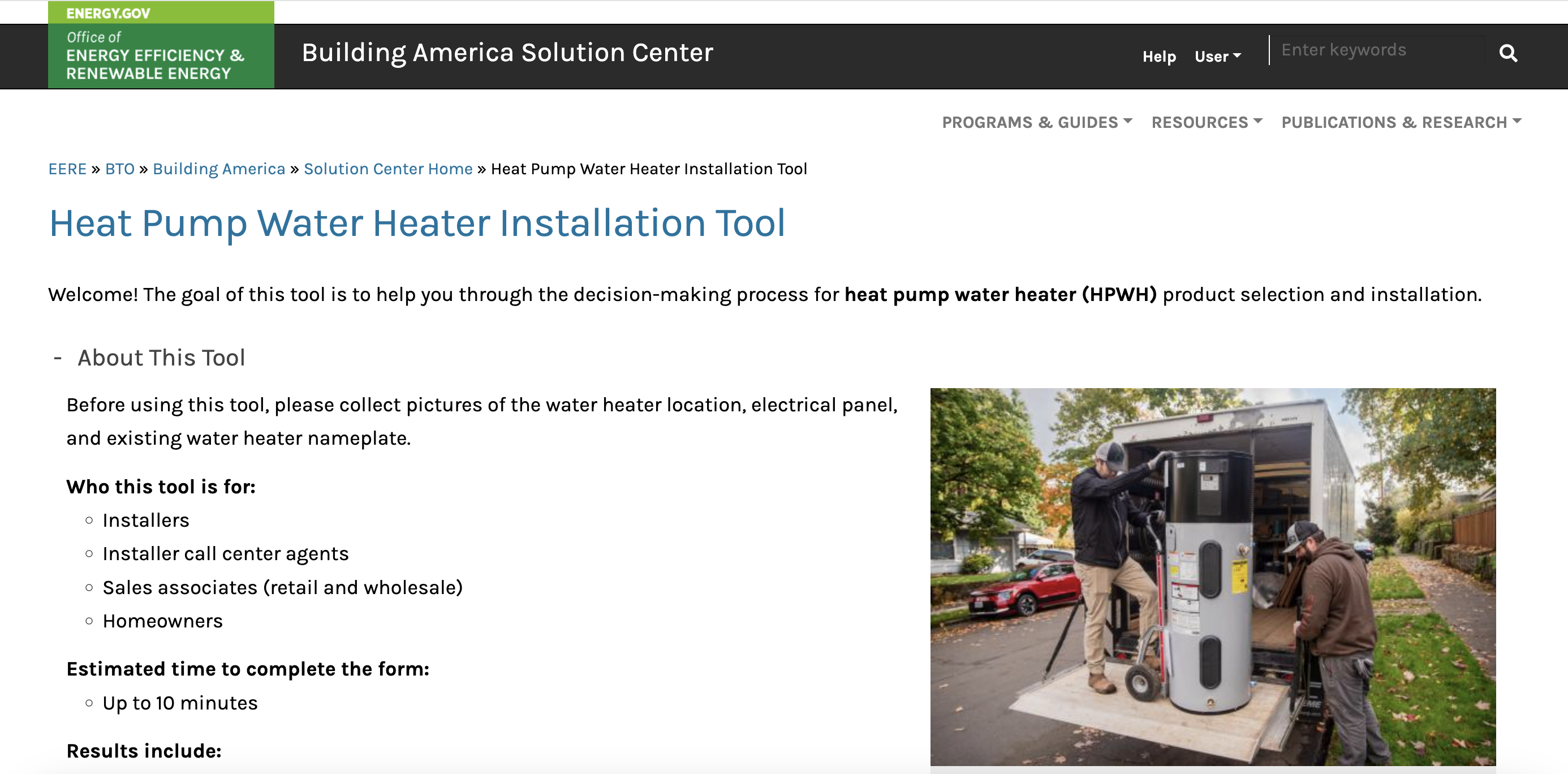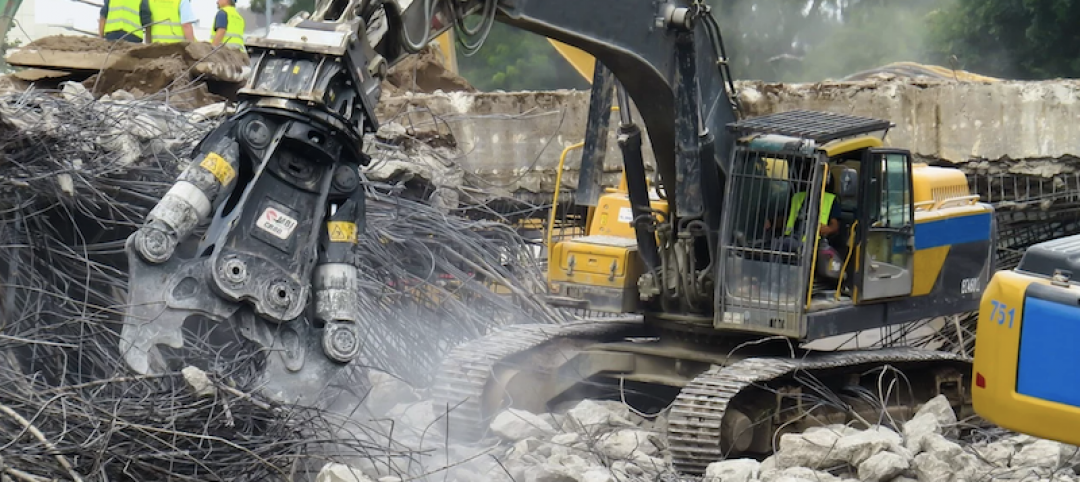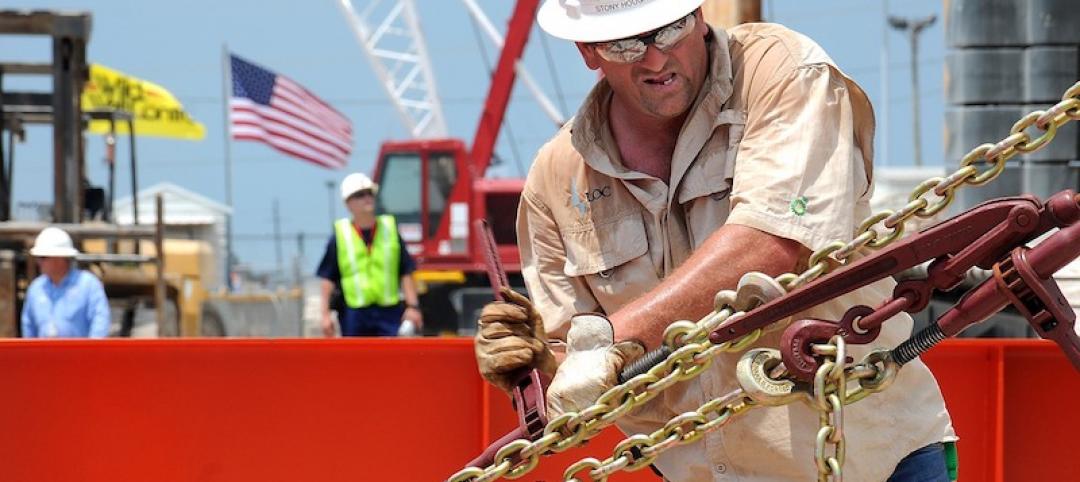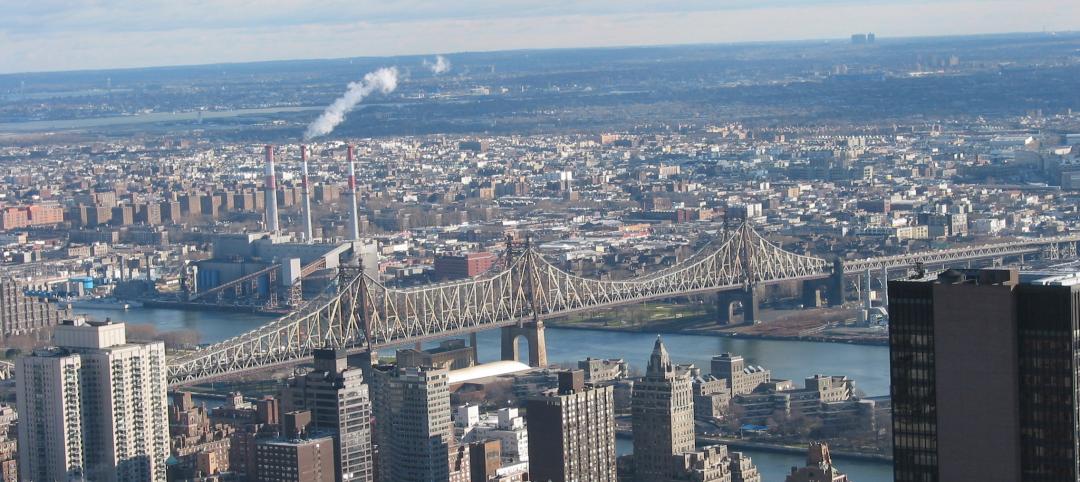A new web-based tool by the Department of Energy offers comprehensive information about how to size, select, and install electric heat pump water heaters (HPWHs).
HPWHs can be two to four times more efficient than standard units. The benefits are maximized when installers follow best practices and choose the best model and size for the home. The HPWH Installation Tool provides customized guidance for installers, sales associates, and homeowners to help overcome barriers to HPWH adoption.
A HPWH resembles a traditional water heater, but rather than using a gas-fired burner or electrical element to warm the water in the tank, the HPWH extracts heat from the surrounding air. Both HPWHs and traditional water heaters last for about 15 years, but HPWHs require a certain amount of airflow to operate effectively, so the location of the water heater needs to be evaluated. It’s important that HPWHs are sized correctly because an undersized heater could, under certain conditions, result in lukewarm water.
The installation tool also helps determine whether a home’s electrical panel needs to be updated—a common situation when replacing a fossil fuel-fired water heater with a HPWH—or if a HPWH that plugs into a standard 120-volt electrical outlet might be a viable option.
Related Stories
Codes and Standards | Dec 10, 2019
Utilities rolling out more grid-interactive efficient building programs
Focus is on energy savings and demand flexibility.
Codes and Standards | Dec 9, 2019
Canada’s Zero Carbon Building Standard reports first 10 certifications
Projects include new and existing offices, schools, and warehouses.
Codes and Standards | Dec 6, 2019
New research examines flood mitigation policies in the U.S.
Thirteen states or cities have adopted effective measures; some restricting development in vulnerable areas.
Codes and Standards | Dec 5, 2019
USGBC unveils vision for LEED Positive
Roadmap will lay foundation for a future LEED that is regenerative.
Codes and Standards | Dec 5, 2019
Report shows reducing embodied carbon can save money and help mitigate climate change
Embodied carbon now accounts for 11% of global greenhouse gas emissions.
Codes and Standards | Dec 5, 2019
Dubai, London and New York are 2019’s ‘Construction Mega Cities’
From 2007 to 2025, GlobalData expects the cities’ combined gross domestic product (GDP) to increase by more than US$8 trillion to US$20.4 trillion.
Codes and Standards | Dec 2, 2019
New GBCI certification recognizes expertise in sustainability
Provides third-party verification of competency to ‘making the world more economically, socially, and environmentally sustainable.’
Codes and Standards | Dec 2, 2019
New tool allows users to learn how to reduce embodied carbon
Calculator delivers first digitized EPDs.
Codes and Standards | Dec 2, 2019
Trade group challenges St. Petersburg, Fla., ordinance on construction contract mandates
Legality of requirement to hire apprentices, disadvantaged workers at issue.
Building Owners | Dec 2, 2019
What building owners and AEC teams need to know about New York’s Climate Mobilization Act
On April 18, 2019, the New York City Council passed the Climate Mobilization Act, a suite of laws aimed to meet the city’s commitment to achieving carbon neutrality by 2050.

















